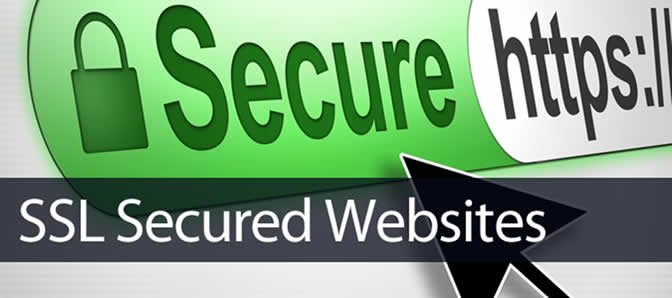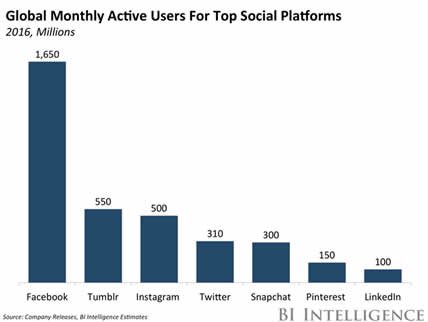
What you need to know before buying SSL certification for your website
The online platforms are getting stronger by the day. We have Google that puts information about every conceivable thing at our very fingertips. If you want to shop, that’s now possible with just a few clicks.
In fact, if you are having trouble with work or school homework, you can easily get a tutor or guide online against a small fee.
It’s safe to say that the internet has penetrated our lives, and made everything easier. So much so that living without it has become unimaginable. According to a study by Ofcom, the time internet users spend online has more than doubled in a decade. In 2005, the total time spent online per week was 9.9 hours, which increased to 20.5 hours by 2014.
According to the latest study by BI intelligence, nearly 20% of the total time spent online in the US by both desktop and mobile users is on social media channels.
We have established the fact that people are spending a lot of time online. Growing interest in social media and the explosive growth of ecommerce confirms the fact that people are willing to share their personal and financial information with online entities.
But, will people share their confidential information with every website they see online? Probably not. According to CreditCard.com, 45% of the total card frauds were done online in the US in 2014.
Personally speaking, I will be more comfortable giving away my personal and financial information to a more trusted website like Facebook, Amazon or eBay, instead of some unknown website I’ve never heard of.
How to Build Trust Online?
There are literally hundreds of articles that will give you different advice on how to build trust for your brand online, and many of these are workable. But, there is one advice that many experts forget; and it is to tell you just how secure you are online.
The topic of online security is incomplete without SSL certification. SSL is an acronym for Secure Sockets Layer. When your browser is connected with SSL technology, the SSL protocol will encrypt the connection between the web browser and the web server.
By encrypted we mean that private information can easily be transmitted between the buyer and the seller without the fear of forgery.
In simple words, SSL is a secure connection that allows two parties to share sensitive information without the fear of tampering.
Is SSL important for my website?
The answer can be yes and no. It all depends on the nature of your website. If you have a blog that only provides information to readers, having a secure connection between you and your readers is not necessary because the user is not sharing any personal and financial information with your site.
But if you are an ecommerce website, or the nature of your business requires users to share personal information then you definitely need an SSL certification.
Statistics also show that more and more online businesses are taking a keen interest in SSL certifications. Here’s a daily chart of certificate issuing and registration.
Cool, so how can I get SSL certification for my website?
Before we talk about how you can get your website SSL certified, it is important to understand which certification is best for your website. There are 3 different types of SSL certifications.
- Single Certificate: This is for websites with no subdomains.
- Wildcard Certification: This SSL Certification is ideal for businesses with a domain with multiple subdomains associated to it.
- Multi-domain Certification: If you have a business that contains more than one domain, you should ideally go for Multi-domain SSL Certification.
How much does an SSL Certification cost?
SSL Certifications come with different levels and each level has a different cost. Recently CloudFlare announced free SSL, but that’s a discussion we will come to later in the post.
For now, here are some certifications and their costs.
Domain Validation – The least expensive version covers only basic encryption and verification of the owner and domain registration.
Organization Validation – Other than what you can get in domain validation, you also get authenticated information about the owner such as their name, address and other similar details.
Extended Validation – This is by far the most powerful SSL validation that most ecommerce businesses buy in order to build the trust factor with their customers. It contains the highest degree of security because of the thorough examination that is conducted before this certificate is issued to a website.
In addition to what you get in Organization Validation, the extended version confirms the legal, physical and operational existence of the entity that is verified. This type of certificate usually takes around a few days to several weeks to receive.
Cost: Actual cost of the SSL certificate is very much dependent upon the number of years of the certification you are buying and a number of other factors. Here is a costing chart that will explain this better.
Free SSL?
As discussed above, CloudFlare has announced that they are providing free SSL certification and to be honest it is an amazing offer especially for smaller websites. But, if you’re running a website that gets a lot of traffic, you’re likely going to end up paying anywhere between $20 to upwards of $5,000/month. Here is another post that discusses why Free SSL from CloudFlare isn’t really free.
Maybe if you are a smaller website, you can try this free SSL certification but if you are a brand that is planning or hoping to receive bigger traffic in weeks and months to come then investing in a paid SSL makes much more sense.
How do I know if my website is SSL Certified?
When you are going to buy a certificate, you will get some kind of transaction proof but the real question is how will your visitors know that your website is SSL certified?
Here are 4 visual clues that make a website SSL certified.
1. Padlock to the left of the URL
2. https URL prefix instead of http
3. A Trust Seal
4. A green address bar (when an EV SSL certificate is issued)
Where do I get my SSL Certification from?
There are many commercial providers for CA but if you are looking for the most trusted providers, here is a chart of the certificate providers’ market share by 2015.
It’s recommended that you get your SSL certificate from the most trusted providers to avoid any problems at any point.
SSL Certification and Ranking Boost:
Recently, many websites have started jumping in on the SSL bandwagon primarily because of the users, but also because Google has started giving ranking benefits to websites that are SSL certified.
Search Engine land covers this topic in great detail.
In my perspective, rankings or not, but if you have visitors and users who are sharing their personal or financial information with you then you must give them a sense of security so that they can continue to purchase and engage with your brand and SSL certificates does exactly that.







